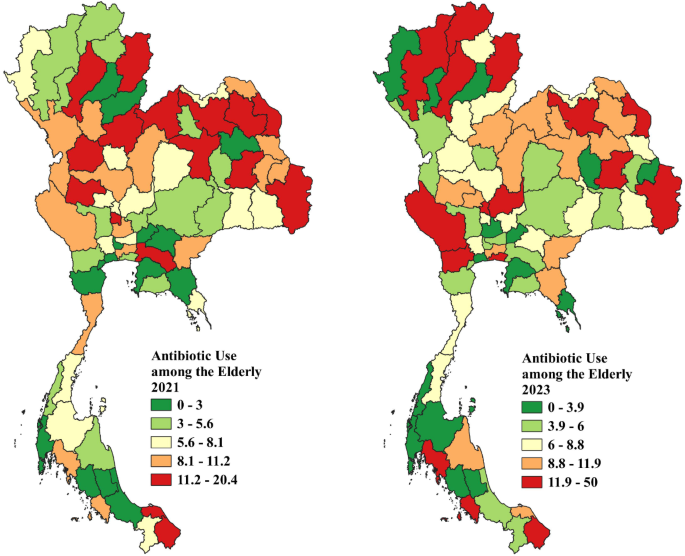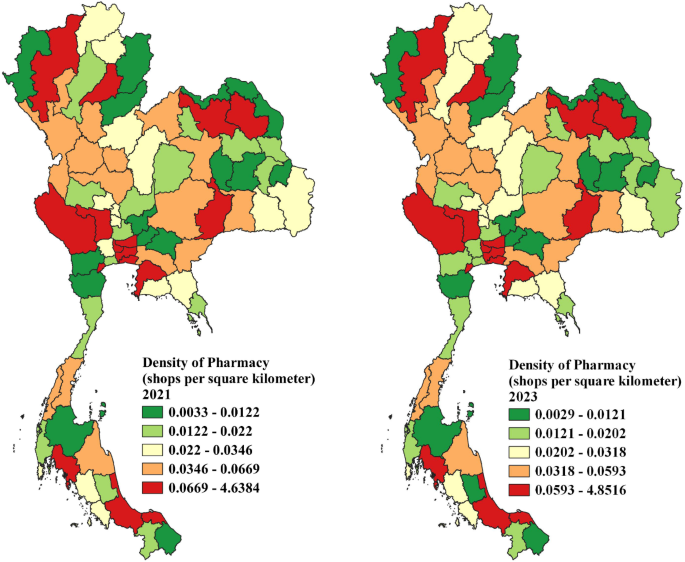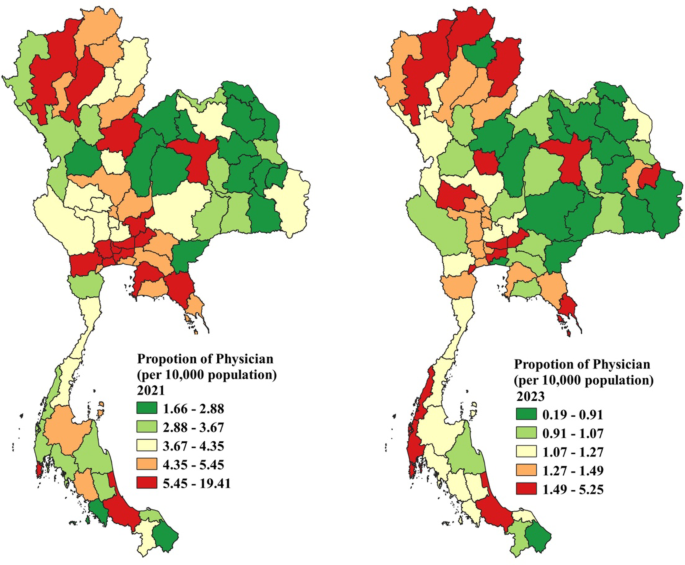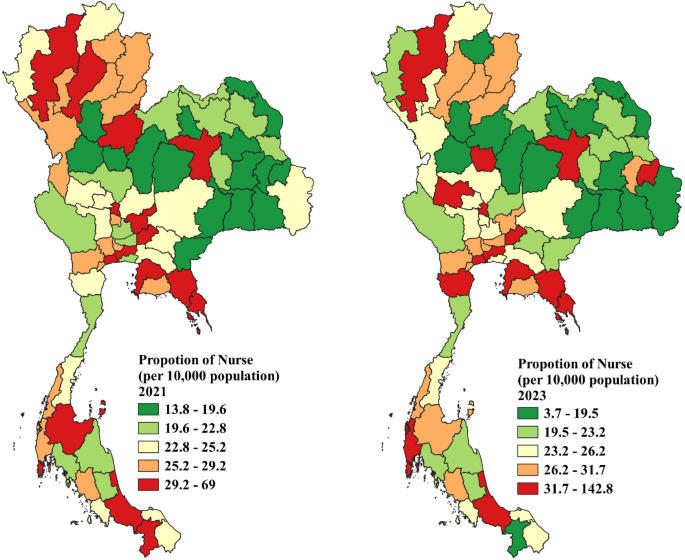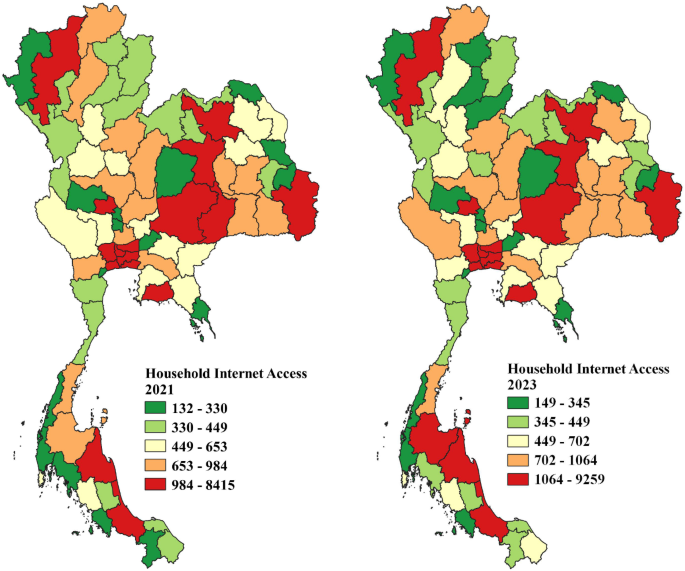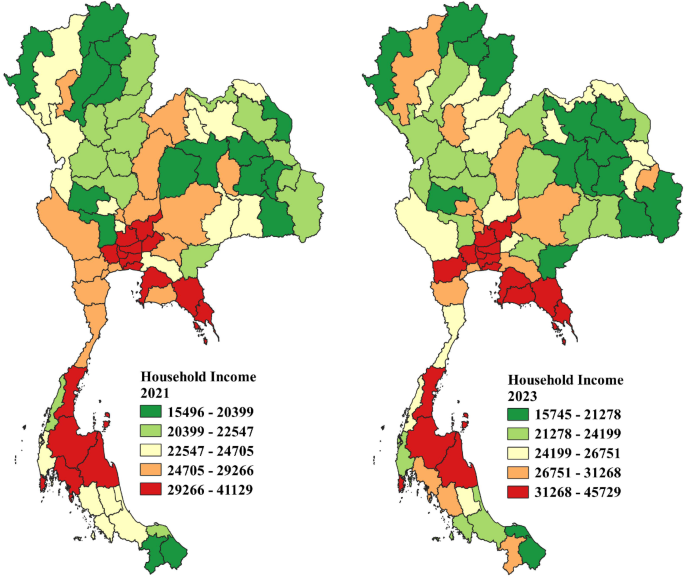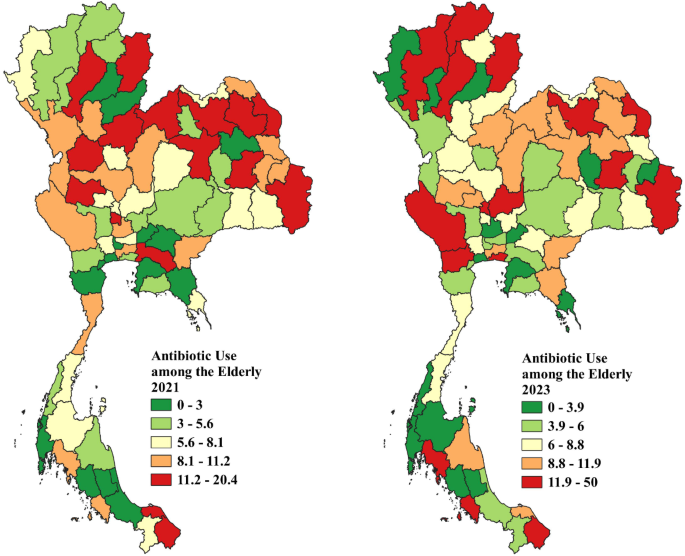Introduction
The COVID-19 pandemic has significantly influenced antibiotic usage trends in Thailand, particularly among the elderly population. Prior to the pandemic, Thailand had implemented policies to regulate antibiotic use, but the crisis has led to increased antibiotic prescriptions for suspected COVID-19 cases, even without clear clinical justification.
Key Findings
- Significant variations in antibiotic use among the elderly were observed across different provinces in Thailand between 2021 and 2023.
- Provinces with higher physician density tended to have lower antibiotic use among the elderly, suggesting improved healthcare quality.
- Household internet access showed a positive correlation with antibiotic use, potentially due to increased online health information seeking and pharmaceutical purchases.
- Household income had a slight negative correlation with antibiotic use, indicating that higher-income households may have better access to preventive healthcare and more judicious antibiotic use.
Policy Recommendations
- Increase the number of physicians, especially in rural areas, and provide specialized training in geriatric medicine.
- Develop reliable digital health platforms for the elderly to access accurate information about antibiotic use.
- Implement health education initiatives across all socioeconomic strata, focusing on appropriate antibiotic use.
- Establish a national surveillance system to monitor antibiotic use among the elderly.
- Strengthen regulations on antibiotic distribution, both in physical pharmacies and online marketplaces.
Conclusion
This study highlights the complex factors influencing antibiotic use among Thailand’s elderly population during the post-COVID-19 era. A multifaceted approach addressing healthcare access, digital health literacy, and socioeconomic disparities is crucial to promoting rational antibiotic use and mitigating antimicrobial resistance.
